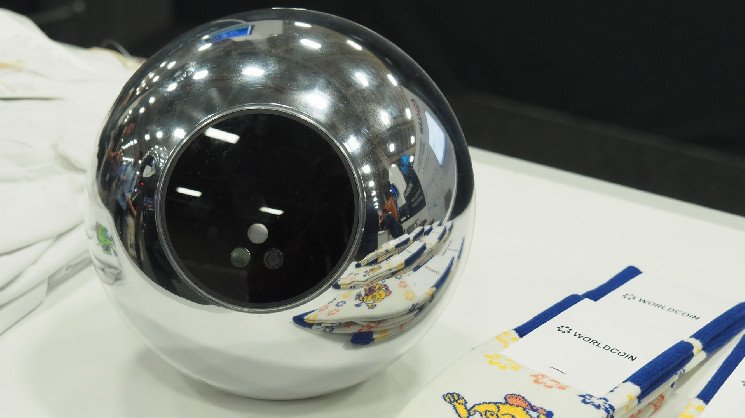Over two years ago, Sam Altman, co-founder of OpenAI, launched Worldcoin, a blockchain project known for its distinctive metal orb used to scan eyeballs.
Recently rebranded as “World Network,” the platform provides users with digital passports — verified through the iris scans — to help online services differentiate humans from bots in an AI-driven internet.
Now, a group of crypto veterans, including the co-founders of decentralized finance juggernaut Lido, are preparing to launch “Y,” a blockchain identity platform aimed squarely at competing with World Network.
CoinDesk obtained an internal planning document for the new project. A person close to Cyber Fund, the venture firm led by Lido co-founders Konstantin Lomashuk and Vasiliy Shapovalov, confirmed the document is genuine. It lays out a vision for a new blockchain-based identity platform that skips World’s controversial eyeball-scanning Orb.
Cyber Fund declined to comment. Ekram Ahmed, the head of marketing and communications for the blockchain infrastructure project Celestia, told CoinDesk he was also joining Y as an advisor. The upcoming project is not otherwise connected to Celestia, Ahmed said.
The document, titled “Y vs. WorldCoin,” describes how Y plans to play up World Network’s controversies — from privacy concerns, to accusations of exploitative user recruitment practices, to a generalized phobia of the project’s metallic iris-scanning orb — as it courts users.
Rather than biometric data, Y will look at the traces people leave behind while using the internet to verify they are human. This method, according to the Y planning document, addresses privacy risks and minimizes fraud — in sharp contrast to World’s reliance on iris scans.
Long-term vision
Over time, Y’s creators apparently intend to build a “Crypto SuperApp that allows users to privately build and earn from their digital identity.” The vision isn’t far off from that of World Network, whose product suite includes an identity-centric blockchain, crypto wallet and app ecosystem.
The Y document is scarce on implementation details, focusing instead on how Y will be marketed as a “direct competitor to WorldCoin” – a strategy explicitly designed to “attract maximum attention.”
Like World, Y will ostensibly help internet users identify themselves as humans, which is expected to become increasingly important as AI tools and AI-generated content fool legacy identity solutions.
The key difference between the two platforms will be how they authenticate users.
Whereas World assigns users “World IDs” using biometric data – those creepy iris scans – Y “aggregates data from users’ existing socials and blockchain activity, and also employs the Ethereum Attestation Service” to verify users. The Ethereum Attestation Service is a set of tools people can use to formally “attest” to the accuracy of certain data, which can be useful for applications like user authentication.
According to the authors of the planning document reviewed by CoinDesk, Y’s authentication processes are designed to address some of WorldCoin’s shortcomings, such as “eliminating risks related to biometric data leaks and minimizing opportunities for fraud.”
Y’s “social-graph-based” approach is also meant to provide a more “nuanced numerical score” to determine a user’s “personhood” compared to World’s Orb, which delivers a simple binary reading on whether or not a person is human.
Throwing shade
According to the planning document reviewed by CoinDesk, Y’s marketing will focus on World Network’s “controversial aspects.”
Chief among the project’s controversies has been its reliance on biometric data. World maintains that it securely encrypts iris scans, but as the authors of the Y document note, the service has nonetheless “sparked serious privacy concerns, resulting in bans in countries like Spain and Kenya.”
World has also led to the proliferation of black markets, where users can buy and sell scans to create fake accounts. Moreover, its reliance on centralized hardware and connections to OpenAI have sparked concern among some decentralization-minded crypto natives.
If Y intends to compete head-on with World, it will need to make up a lot of ground in terms of user numbers. World launched in 2023 and has since onboarded more than 15 million users, according to numbers released last month by the project. Seven million of those users have reportedly been authenticated by World’s Orb, with the rest opting for a lower-tier World ID that doesn’t require eyeball scanning.
Lido is the largest decentralized finance app on Ethereum, with more than $26 billion in “staked” deposits from investors who “stake” ETH with the platform to help power Ethereum’s security.
In addition to leveraging their clout among crypto netizens to promote Y, Lido’s founders are likely to seize on World’s connections to OpenAI in their bid to attract users.
“With Sam Altman, co-founder of both WorldCoin and OpenAI, we have a real possibility that WorldCoin may follow the same path as OpenAI,” the Y document states, noting that “OpenAI started as an open-source, non-profit project, but later became a closed-source for-profit corporation.”
It’s unclear how — or whether — Y will leverage ties to Lido or any of Cyber Fund’s other portfolio companies, which include the blockchain validator firm P2P.org and Ethereum layer-2 network Nil.
Read the full article here
